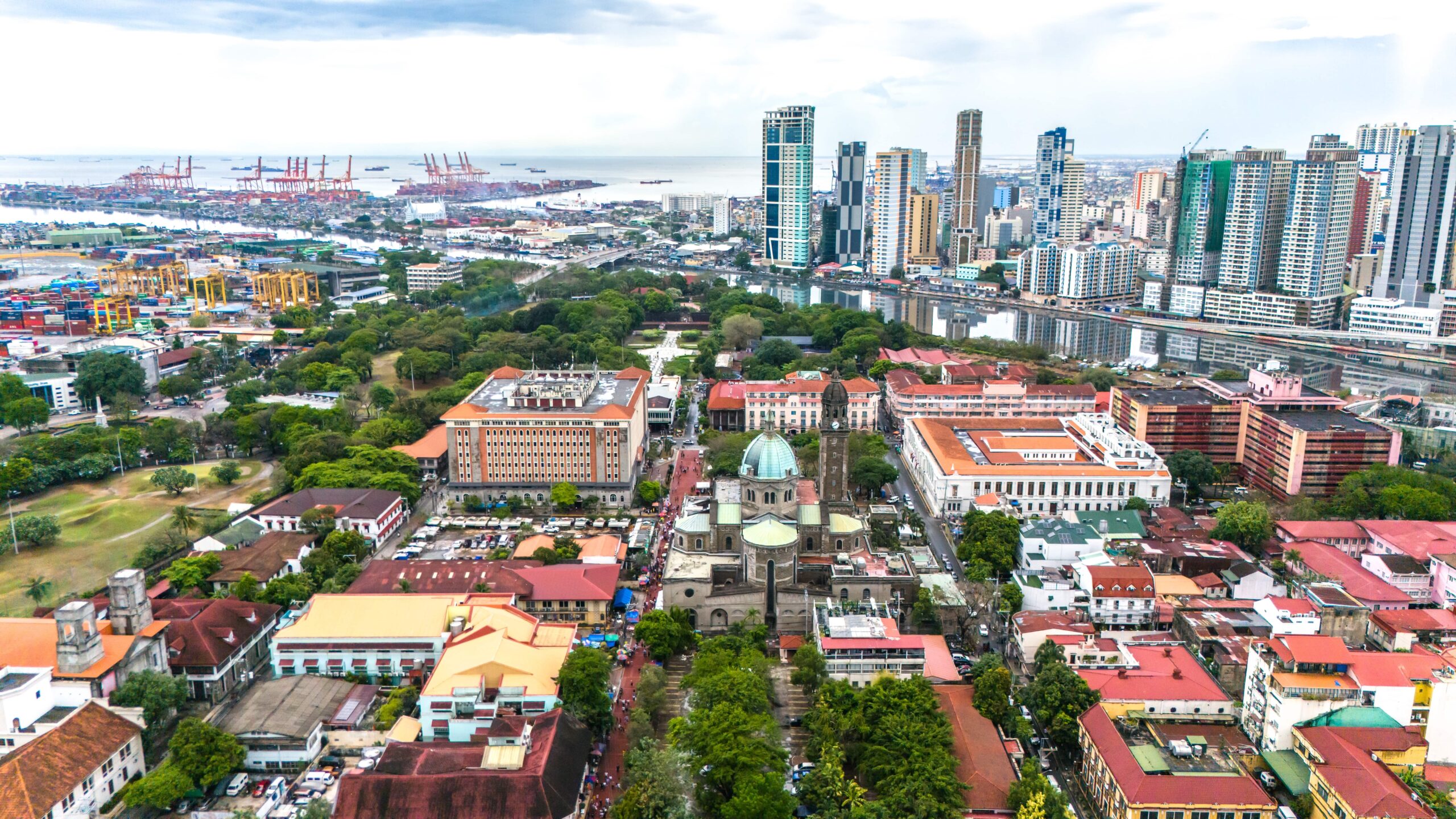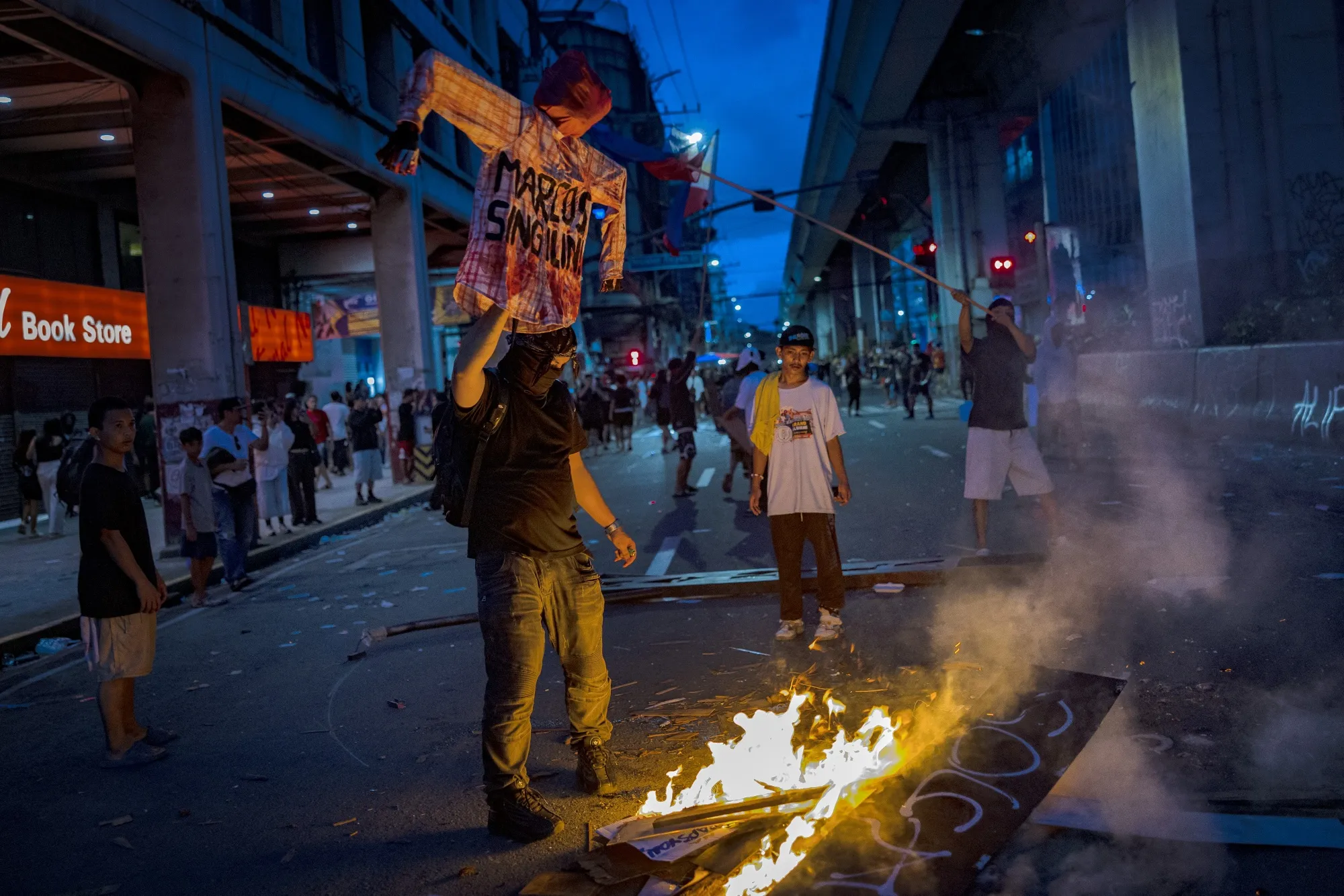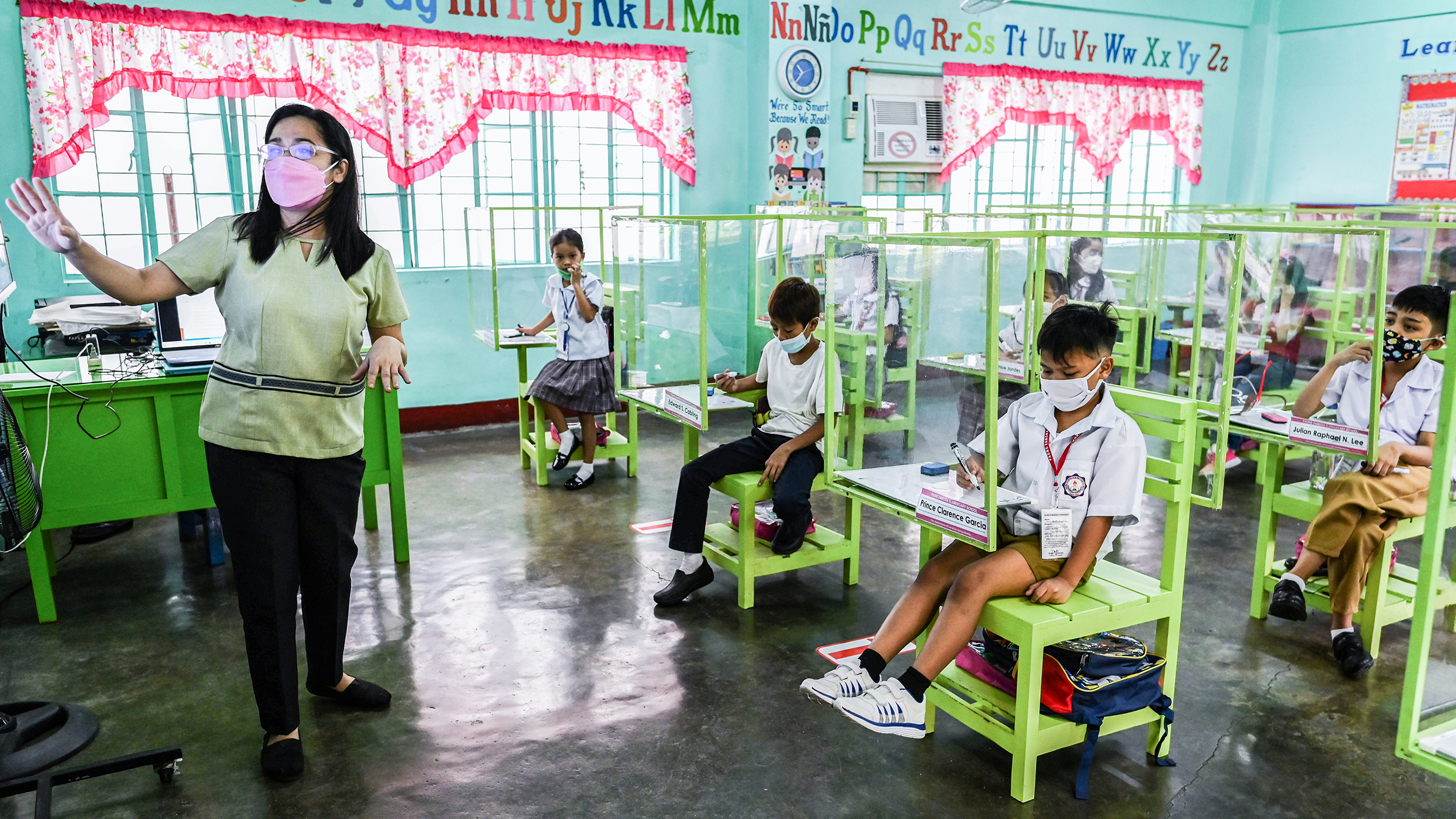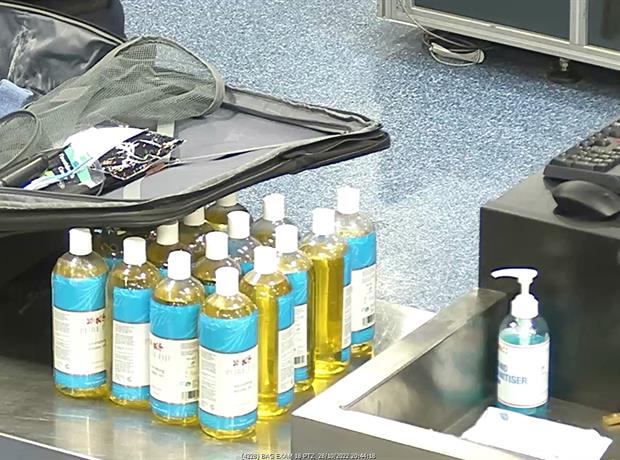More in Economy

Philippine Economy Remains Resilient Amid Political Challenges, Says Economic Planning Secretary
Economic Planning Secretary Arsenio M. Balisacan affirmed that the Philippine economy continues to show resilience despite recent political upheavals and corruption controversies affecting the administration. In a formal statement, Balisacan emphasized, \"The Philippine economy remains strong despite recent governance challenges and continuing global uncertainties.\" He robustly defended the government’s economic team and its reform initiatives, asserting that these measures, if maintained, will enhance the country’s capacity to endure both internal and external shocks. Balisacan underscored the continued commitment of the administration to implement structural reforms aimed at bolstering governance and raising productivity across key sectors. He cited several significant legislative efforts, including the Public-Private Partnership (PPP) Code, the Konektadong Pinoy Act, the CREATE MORE Act, and the Accelerated and Reformed Right-of-Way (ARROW) Act. These reforms are designed to accelerate infrastructure development, improve competitiveness, and expand market access. He described the 4% economic growth recorded in the third quarter—a figure below expectations—as a \"feat\" achieved under challenging political circumstances and adverse global conditions. Moreover, Balisacan pointed out that international organizations project the Philippine economy to grow by 5.7% in 2026. While acknowledging that recent events and external factors could impact short-term economic performance, Balisacan maintained that \"the economy’s overall trajectory remains firm,\" supported by a robust labor force, steady investment inflows, and ongoing technological advancements that could drive growth up to 6%. He reaffirmed that the economic team’s priorities remain aligned with the Philippine Development Plan 2023–2028, with intensified efforts to sustain reform momentum. \"The government will continue to deploy fiscal, monetary, financial, technological, and social-protection policies, together with key legislative measures, to keep actual growth aligned with this potential,\" Balisacan stated. \"Simultaneously, we have been laying down the necessary investments to future-proof the economy amid environmental, technological, and geopolitical disruptions.\" In closing, Balisacan called on the business community, civil society groups, and the international community to actively collaborate with the government in advancing its reform agenda to ensure sustained economic growth and stability.
Economy
|2 min read

Comelec Urges Bangsamoro Transition Authority to Enact Districting Law by November 2025
The Commission on Elections (Comelec) has issued a reminder to the Bangsamoro Transition Authority (BTA) regarding the necessity of passing the Bangsamoro Autonomous Region in Muslim Mindanao (BARMM) districting law by November 30, 2025. This legislation is critical to facilitate preparations for the upcoming Bangsamoro Parliamentary Elections (BPE). Comelec Chairman George Garcia highlighted the stringent timeline, stating, \"A law must be in place by November 30 because the Comelec needs to start the filing of candidacies on January 2, right as the office resumes operations after the long holiday break.\" He warned that failure to enact the law within this timeframe would severely jeopardize the election preparations, especially given that the elections will be automated. \"Otherwise, we will not be able to manage it, especially since this is an automated election,\" Garcia added. The poll official also expressed ongoing concerns over the uncertainty surrounding the conduct of the BPE due to the BTA's delay in passing the districting law. \"Unfortunately, we are still currently waiting for news on the passage of the districting law. There is still uncertainty whether it will be passed,\" Garcia said, further describing the situation as \"really very uncertain.\" This reminder follows a directive from the Supreme Court, which mandated the BTA to enact the new districting law by October 30, 2025. The same ruling instructed the Comelec to proceed with the preparations and conduct of the Bangsamoro Parliamentary Elections no later than March 31, 2026. The deadline underscores the critical phase in the region's transition process and ensures that the electoral process advances according to constitutional and legal timelines.
Economy
|2 min read
Rising European Medical Costs Prompt Filipino Travellers in UAE to Prioritize Travel Insurance
Medical expenses in Europe have increased by approximately 21% over the past four years, posing significant financial risks to travellers, especially Filipino nationals residing in or travelling from the UAE. Unexpected hospital bills in popular European destinations can escalate quickly, with emergency medical transportation alone costing between US $25,000 and $50,000 in some instances. Experts advise that standard health insurance often does not cover illnesses or accidents that occur outside a traveller's home country. Therefore, Filipino travellers heading to Europe must ensure their travel insurance explicitly covers overseas medical costs. Without appropriate coverage, even a short hospital stay abroad could become prohibitively expensive. "Planning ahead by verifying coverage limits, exclusions, repatriation provisions, and partnering hospitals can greatly reduce stress in case of medical emergencies," an industry specialist noted. In addition to securing insurance, meticulous preparation of travel documents is essential. Filipino travellers are urged to gather necessary paperwork such as a valid passport, UAE residence visa, travel itinerary, proof of funds, Emirates ID, recent passport photos, bank statements, and insurance policy details well before departure. Selecting the correct visa category aligned with the main destination and travel purpose is critical to avoid delays. Travel insurance costs typically range from 4% to 6% of the total trip expense, varying based on destination, age, and duration. Policies for tourism or business travel to Europe should comprehensively cover medical emergencies, evacuation, and cancellations. While younger, healthy travellers might opt for basic plans, those with pre-existing conditions or extended stays should consider higher coverage limits. Booking insurance promptly upon confirming travel plans is vital to minimize the risk of policy adjustments or coverage gaps. Once in Europe, travellers should remain vigilant by familiarizing themselves with local emergency contacts and hospital options within their insurer's network. Carrying both digital and physical copies of insurance and visa documents ensures quick access during emergencies. Immediate notification of insurers following an accident is crucial to enable direct management of care and costs, potentially averting inflated expenses. Filipino travellers are encouraged to treat travel insurance as a fundamental component of their journey, ensuring peace of mind and financial protection while abroad.
Economy
|2 min read

DPWH and ICI Recommend Plunder Charges Against Leyte Rep. Romualdez and Former Ako Bicol Rep. Co
The Department of Public Works and Highways (DPWH), in partnership with the Independent Commission for Infrastructure (ICI), has submitted joint recommendations to the Office of the Ombudsman urging the investigation and possible prosecution of Leyte Representative Martin Romualdez and resigned Ako Bicol party-list Representative Zaldy Co. The charges include plunder under Republic Act (RA) 7080, violations of the Anti-Graft and Corrupt Practices Act (RA 3019), as well as direct bribery under Article 210 of the Revised Penal Code. DPWH Secretary Vince Dizon disclosed during a press briefing that the cases revolve around contracts awarded to construction firms Sunwest Inc. and Hi-Tone Construction, spanning from 2016 to 2025. These contracts are valued at around PHP 100 billion, with Sunwest accounting for PHP 67 billion and Hi-Tone PHP 32 billion. Included in the evidence are sworn statements from retired Sergeant Orly Guteza, a former security consultant for Co, who claimed to have delivered large sums of cash to Romualdez and Co at their residences. Guteza’s testimony was first presented by Senator Rodante Marcoleta during a Senate Blue Ribbon Committee hearing last September 25. However, the credibility of the affidavit has been challenged, following confirmation by the Executive Judge of the Manila Regional Trial Court that the notarizing lawyer’s signature was forged. Further developments include the Office of the Ombudsman’s filing of two graft counts and a malversation charge against Zaldy Co in connection with alleged irregularities involving a PHP 289.4 million road dike project in Oriental Mindoro. Apart from Co, several former DPWH regional officials and a Sunwest Construction executive were also named. The Ombudsman’s prosecutorial panel advised against bail for Co on the malversation charge, citing the amount involved exceeds the PHP 8.8 million threshold stipulated by law. This ongoing investigation underscores intensified efforts to hold public officials accountable for corruption in government infrastructure projects.
Economy
|2 min read

Philippine Education System Faces Deep Challenges Despite Ongoing Reforms
The Philippine education system is encountering significant challenges across all stages of learning, from early childhood to higher education, while remaining one of the least prioritized sectors in public policy. Recent data from the Philippine Statistics Authority reveal that 24 million Filipinos aged 10 to 64 are functionally illiterate, with 5.8 million unable to perform basic reading and writing tasks. Alarmingly, in 2024, 20% of high school graduates reached adulthood without mastering essential literacy and numeracy skills. The World Bank reports that 91% of Filipino 10-year-olds struggle with reading simple texts, a situation worsened by the disruptions caused by the COVID-19 pandemic. Despite these concerns, many parents still view formal education as unnecessary for children under five, often relying on relatives or siblings for care due to work-related absences, compounded by limited access caused by long distances to child development centers. Teachers notice the lingering impact of these early learning gaps by Grade 3, with many students performing one to two levels below expectations. Support programs such as learning camps engage only about 10% of struggling students, with just over half completing assessments. Several critical policies aimed at improving literacy and numeracy have remained pending since 2023. Compounding the issue, frequent class suspensions due to inclement weather and local holidays lead to significant learning losses, with some regions missing over 40 school days. These interruptions correlate with sharp declines in Grade 4 Math and Science performance. Selective institutions like the Philippine Science High School System face capacity constraints, leaving more than 5,800 qualified students without placement between 2022 and 2025. Private school students outperform public school peers in entrance exams, underscoring deep-rooted educational inequalities. Reforms under the MATATAG curriculum face implementation delays, with only 35 of 90 required textbook titles delivered for Grades 4 and 7 by January 2025. Additionally, specialized tracks in arts, journalism, science, and technical-vocational education suffer from unclear guidelines and inconsistent resources. The Alternative Learning System (ALS), designed to assist out-of-school youth and adults, reaches just 600,000 out of an estimated 4.9 million potential beneficiaries, with only half completing the program. Funding remains insufficient, and many learning centers lack proper facilities, while key ALS policies remain unapproved. Post-secondary education participation stands at around 35%, below regional averages, with the Bangsamoro Autonomous Region in Muslim Mindanao (BARMM) recording the lowest rates and a dropout rate of 93%. Although free tuition laws have increased enrollment in public universities, these institutions are nearing capacity, causing some students to rely on local universities that offer fewer programs. The Tertiary Education Subsidy has tightened eligibility to focus on the poorest students, but lower subsidy amounts may restrict their academic options. Moreover, the Commission on Higher Education reviews program requirements infrequently, adopting a research-centric model that does not align with many smaller institutions. Consequently, graduate study participation and research outputs remain low by global standards. Performance assessments, such as the 2022 Programme for International Student Assessment creative thinking test, placed Filipino students near the bottom among 64 countries, scoring an average of 14 points. Resource deficiencies exacerbate these issues. Education expenditure is only 3.6% of GDP, below UNESCO recommendations. Approximately 5,000 schools lack electricity, and 10,000 have no clean water. Teacher competency is also a concern, with two-thirds demonstrating low to medium-low classroom effectiveness, and many teachers instruct classes outside their subject expertise. Infrastructure challenges persist, with a shortage of over 165,000 classrooms. Urban schools face overcrowding, while rural facilities are often dilapidated and vulnerable to weather damage. To cope, schools frequently implement shifting schedules to accommodate students in limited spaces. Efforts to address these long-standing problems include the Academic Recovery and Accessible Learning Program Act (ARAL), aimed at supporting students struggling with reading and math. The Department of Education is finalizing a policy to consolidate national literacy and numeracy programs under the P3 framework to strengthen foundational skills in higher grades. For early childhood education, the Early Childhood Care and Development Systems Act mandates local governments to establish dedicated offices, staff them permanently, and improve facilities, especially in low-income areas. However, national standards for early learning remain under discussion, and enrollment rates are low, with only 1% of children aged 0 to 2 and 21% of those aged 3 to 4 participating in programs. The National Learning Recovery Program has reached over 2.7 million learners in more than 35,000 schools, complemented by the Tara Basa tutoring initiative supporting over 62,000 students. Early evaluations report a 15% increase in English reading proficiency and a 32% reduction in learners requiring full intervention. Filipino language readiness improved by 25%, with a 36% decrease in students needing comprehensive review. Investments in educational materials have surged, with over 7 million science and math equipment pieces, 200,000 technical-vocational tools, and nearly 50 million textbooks acquired by October 2024. Recent procurements additionally included assistive laptops for learners with disabilities and more than 55,000 ICT packages provided nationwide. Education Secretary Juan Edgardo "Sonny" M. Angara emphasized the collective responsibility in education, stating, "Education is not solely the responsibility of one sector. DepEd acts collectively — together with government agencies, local governments, and the entire community — for the future of the youth."
Economy
|5 min read

Authorities Seize ₱133 Million Worth of Suspected Cocaine in Palawan Coastal Area
Authorities recovered an estimated ₱133 million worth of suspected cocaine along a secluded shoreline in Linapacan, Palawan, on November 18. The discovery came after a local resident alerted police to suspicious packages at Sitio Calelenday in Barangay Maroyog-royog. Responding officers from the municipal police station, the provincial drug enforcement unit, and intelligence teams arrived at approximately 6 p.m., where they found multiple taped boxes labeled "stone" scattered along the coast. Inside these containers were roughly 25.21 kilograms of suspected cocaine. The seized contraband has since been handed over to the Palawan Provincial Forensic Unit and will be forwarded to the regional office of the Philippine Drug Enforcement Agency for further analysis and case processing. Police officials highlighted the critical role of community awareness in preventing remote coastal zones from being exploited as drop-off points for criminal organizations. They stressed that these isolated beaches and islands remain vulnerable due to limited surveillance. "It is imperative that communities stay vigilant, as syndicates often target hard-to-monitor coastal areas for illegal deliveries," authorities remarked. In response, law enforcement agencies are intensifying both land and maritime patrols to curb attempts by drug traffickers to use these remote locations. This significant confiscation underscores the ongoing challenges faced in securing Palawan’s expansive and sparsely monitored coastlines against illicit activities.
Economy
|2 min read

Foreign National Sentenced to Life Imprisonment for Largest Meth Seizure in Philippine History
The Olongapo City Regional Trial Court has handed down a life sentence and imposed a P10 million fine on a foreign national, Kong Ket Koon, following his conviction in a landmark drug trafficking case. This verdict stems from the seizure of approximately 1.48 tons of Methamphetamine Hydrochloride, commonly referred to as "shabu," with an estimated street value exceeding P10 billion. Koon was arrested on June 19, 2025, after a Philippine maritime interdiction operation along the coastal waters of Zambales. Authorities discovered him concealed in the engine bay of a vessel, where numerous sacks disguised as tea bags were found to contain the illegal substance. The Department of Justice confirmed that Koon was successfully prosecuted under Section 11, Article II of the Comprehensive Dangerous Drugs Act (R.A. No. 9165) for illegal possession of prohibited drugs. During the trial, the defendant claimed ignorance of the drug contents within the sacks. However, the court dismissed this defense, ruling that his act of hiding alongside the contraband demonstrated clear awareness. The court also emphasized that under Philippine drug laws, possession is considered a mala prohibita offense, meaning criminal intent need not be proven if the prohibited act was knowingly committed. This landmark conviction was finalized within six months of Koon’s arrest, underscoring the authorities’ commitment to swift justice in one of the country’s most significant drug cases.
Economy
|2 min read

US to Open Vast Coastal Waters for Offshore Oil and Gas Drilling
The US Department of the Interior unveiled an ambitious plan to auction 34 offshore oil and gas lease sales spanning 1.27 billion acres of coastal waters, signaling a major increase in fossil fuel extraction activity. This area, roughly equivalent in size to the Amazon rainforest, includes previously untapped regions off northern Alaska, the Gulf of Mexico—referred to by the administration as the Gulf of America—and areas off the California coast. Secretary of the Interior Doug Burgum criticized the previous administration for halting offshore leasing initiatives, stating, \"The Biden administration slammed the brakes on offshore oil and gas leasing and crippled the long-term pipeline of America’s offshore production.\" He emphasized that developing offshore energy resources requires long-term investment and promised that the new leasing plan would sustain the industry, safeguard jobs, and maintain US energy leadership for decades. President Donald Trump has consistently promoted increased fossil fuel drilling, often dismissing renewable energy efforts and climate change science, which he labels a \"con.\" Under his leadership, the US has withdrawn from several international climate agreements and notably did not send an official delegation to the latest COP30 climate summit in Brazil. Despite federal ambitions, the proposal faces strong opposition from coastal states. California Governor Gavin Newsom condemned the plan as a threat to the state\'s economy and environment, vowing to resist offshore drilling initiatives to protect local communities and ecosystems. He stated, \"Trump’s idiotic plan endangers our coastal economy and communities and hurts the well-being of Californians.\" In the Gulf region, lingering concerns remain from the 2010 Deepwater Horizon disaster, which had devastating effects on tourism and fisheries. Florida Senator Rick Scott also voiced opposition, stressing the importance of preserving Florida\'s coastline from drilling to safeguard the state\'s environment, tourism, and military operations. The administration\'s proposal marks a stark contrast to global trends favoring renewable energy and climate change mitigation, setting the stage for contentious debates on the country\'s energy future.
Economy
|2 min read

Leptospirosis Cases Surge to 106 in Cebu Amidst Typhoon Aftermath
The province of Cebu has reported a total of 106 suspected leptospirosis cases, including seven deaths, following the severe flooding brought by Typhoon Tino. Data from the Cebu Provincial Health Office (PHO) spanning November 1 to 20, 2025, indicates a significant rise in infections compared to the same period last year. Danao City accounts for the highest number of cases with 34 reported infections and two related deaths. Balamban ranks second, tallying 28 cases with four fatalities. These municipalities have seen an influx of patients admitted to both local hospitals. Other areas affected include Asturias with nine cases, Talisay City and Consolacion each reporting eight, Liloan with five, Compostela and Pinamungajan recording three each, Tuburan with two cases (including one death), Toledo City also with two, and single cases in Argao, Medellin, Sibonga, and San Francisco. Dr. Josephine Arcenal, head of the Cebu PHO, emphasized that the number of cases this year far surpasses the previous year’s figures. "Yes, the numbers are significantly higher. From January 1 to October 31, 2024, we recorded less than 50 cases within the same timeframe. So far in 2025, from January to October, there were 90 confirmed cases with 11 deaths. Adding November's 117 cases, which are yet to be fully confirmed, indicates an alarming rise," Dr. Arcenal stated on November 21, 2025. She noted that the widespread flooding in areas with high leptospirosis incidence is a key factor in the surge. "A large portion of the population was affected by these floods," Dr. Arcenal explained. The PHO has also alerted that with the escalating number of cases, a local government declaration of an "outbreak" is possible, although any official announcement is expected to come from the Department of Health (DOH). In response, provincial authorities continue distributing medical supplies and antibiotics across affected municipalities. Dr. Arcenal urged individuals exhibiting leptospirosis symptoms to seek immediate medical attention to ensure prompt treatment and recovery. She further cautioned the public against delaying treatment or avoiding medication, highlighting that untreated leptospirosis can lead to severe complications such as kidney failure or even death.
Economy
|2 min read

Four Weather Systems Bring Widespread Rain and Thunderstorms Across the Philippines
The Philippine Atmospheric, Geophysical and Astronomical Services Administration (PAGASA) reported early Saturday that four distinct weather systems are currently influencing weather patterns nationwide. According to the 4 a.m. bulletin, northeastern provinces including Apayao, Kalinga, Cagayan, Isabela, Quirino, and Nueva Vizcaya will experience cloudy conditions accompanied by scattered rains and sporadic thunderstorms due to the influence of a shear line. Additionally, the Intertropical Convergence Zone (ITCZ) is affecting several regions, bringing cloudy skies with scattered rain and thunderstorms to Caraga, Northern Mindanao, Davao, and Palawan. The rest of Mindanao is expected to see partly cloudy to cloudy skies with isolated rain showers or thunderstorms, also attributed to the ITCZ. The northeast monsoon is causing cloudy skies with rain in Batanes and much of the Cordillera region, while the Ilocos area can expect partly cloudy to cloudy skies with isolated light rains. Elsewhere, easterly winds will generate partly cloudy to cloudy skies with scattered rain showers or thunderstorms across other parts of the country. Wind and sea conditions vary by region: Northern Luzon will experience moderate to strong winds with moderate to rough seas. The Visayas and the rest of Luzon will have moderate winds and seas, whereas Mindanao can expect light to moderate winds and slight to moderate sea conditions. PAGASA advises residents and travelers to remain cautious given the current weather disturbances and to stay updated on further advisories.
Economy
|2 min read
